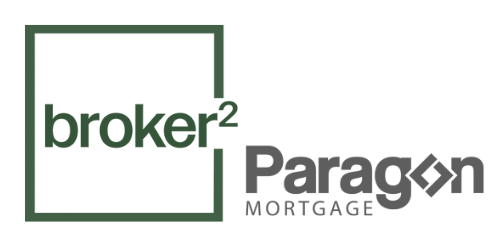How to Not Qualify for a Mortgage
Sukh Sohal • February 2, 2021

If you have no desire at all to qualify for a mortgage, here are some great ways to make sure you don't accidentally end up buying a house and taking out a mortgage to do so.
One of the best ways to ensure you won't qualify for a mortgage is to be unemployed.
Yep, banks hate lending money to unemployed people! Okay, so you have a job. Well, that's okay, you can always unexpectedly quit your job just as you are trying to arrange financing! Even if you are making a lateral move, or taking a better job than the one you have now, that's cool... any change in employment status while you are looking to get a mortgage will most likely wreck your chances of getting a mortgage for a while. This is because lenders want to see stability; they want to know that you have been in your current position for some time, that you are past probation, and that everything is working out well. By changing jobs right when you are looking to buy a property, you won't instill the lender with confidence, and they probably won't give you a mortgage. Mission accomplished.
Don't wanna buy a house? Well, then it's best you don't save any money. Better yet, you should probably borrow as much money on credit as you can.
One of the main qualification points on a mortgage is called your debt-service ratio. Simply put, the more money you owe in consumer debt, the less money you will qualify to borrow on a mortgage, because your ratio of income compared to your debt is higher when you owe more money. Consider this permission to go and finance a Harley-Davidson. Do it, right now. Not a big fan of motorcycles? That's cool; a Ford 150 should do the trick nicely. The key here is to make sure you add as much monthly payment as you can. The bigger the payment, the better.
But let's say that unfortunately your debt-service ratios are in line, you have been able to save up the necessary 5% down payment, and you are on your way to buying a house. What do you do? Ugly documentation! A great way to make sure your lender feels uncomfortable is to have really terrible bank statements.
Typically when proving your down payment, the lender will require 90 days’ history of your account(s), with your name on the statement, showing that you have accumulated the down payment over time. Want to really mess things up? Make sure there are lots of deposits over $1000 that can't be substantiated. This will look like money laundering. If that doesn't work, you can always black out your "personal information." Just use a black Sharpie and make your bank statements look like a classified FBI document. Lenders hate that!
So you've got a great job and lots of money… don't panic, you can still absolutely wreck your chances of qualifying for a mortgage. Just don't pay any of your bills on time.
Seriously, borrow lots of money, and then stop paying! Boom. Why would any lender want to lend you money when you have a great track record of not paying back any of the money you borrow? Now, if this feels morally wrong, okay, here is an ethical way to wreck your credit. Don't pay that cell phone bill out of principle. We've all been there — roaming charges, extra data charges that the cell company added on your bill… choose not to pay this on principle. This is a great way to sink your chances of getting a mortgage, I mean, how are you supposed to know that some collections (like cell phones) will show up on your credit report?
Last, if you want to make sure you never get financing, insist on buying the worst house in a bad neighbourhood.
You see, the property you are looking to buy is very important to the lender. If they lend you the money to buy it and you stop making the payments, they will be forced to repossess and sell it. They are going to make sure they can recoup their initial investment. So, a "handyman special, fixer upper, with lots of potential" is a great option. As everyone knows, those words are code for "a giant dump." Bonus points if you get those terms written in the MLS listing. Yep, insist on buying something that is falling apart and stick to it; don't ever consider buying a solid home in a good neighbourhood.
a shot of a run-down house on a hill
So there you have it, if you don't want a mortgage, no problem. Quit your job, borrow lots of money, wreck your credit, and insist on buying a dump.
However, on the off chance you feel homeownership is right for you, contact us anytime, we can help you put a plan in place to avoid these (and many more) mortgage qualification pitfalls.
RECENT POSTS

Thinking About Selling Your Home? Start With These 3 Key Questions Selling your home is a major move—emotionally, financially, and logistically. Whether you're upsizing, downsizing, relocating, or just ready for a change, there are a few essential questions you should have answers to before you list that "For Sale" sign. 1. How Will I Get My Home Sale-Ready? Before your property hits the market, you’ll want to make sure it puts its best foot forward. That starts with understanding its current market value—and ends with a plan to maximize its appeal. A real estate professional can walk you through what similar homes in your area have sold for and help tailor a prep plan that aligns with current market conditions. Here are some things you might want to consider: Decluttering and removing personal items Minor touch-ups or repairs Fresh paint inside (and maybe outside too) Updated lighting or fixtures Professional staging Landscaping or exterior cleanup High-quality photos and possibly a virtual tour These aren’t must-dos, but smart investments here can often translate to a higher sale price and faster sale. 2. What Will It Actually Cost to Sell? It’s easy to look at the selling price and subtract your mortgage balance—but the real math is more nuanced. Here's a breakdown of the typical costs involved in selling a home: Real estate agent commissions (plus GST/HST) Legal fees Mortgage discharge fees (and possibly a penalty) Utility and property tax adjustments Moving expenses and/or storage costs That mortgage penalty can be especially tricky—it can sometimes be thousands of dollars, depending on your lender and how much time is left in your term. Not sure what it might cost you? I can help you estimate it. 3. What’s My Plan After the Sale? Knowing your next step is just as important as selling your current home. If you're buying again, don’t assume you’ll automatically qualify for a new mortgage just because you’ve had one before. Lending rules change, and so might your financial situation. Before you sell, talk to a mortgage professional to find out what you’re pre-approved for and what options are available. If you're planning to rent or relocate temporarily, think about timelines, storage, and transition costs. Clarity and preparation go a long way. The best way to reduce stress and make confident decisions is to work with professionals you trust—and ask all the questions you need. If you’re thinking about selling and want help mapping out your next steps, I’d be happy to chat anytime. Let’s make a smart plan, together.

Bank of Canada maintains policy rate at 2¼%. FOR IMMEDIATE RELEASE Media Relations Ottawa, Ontario January 28, 2026 The Bank of Canada today held its target for the overnight rate at 2.25%, with the Bank Rate at 2.5% and the deposit rate at 2.20%. The outlook for the global and Canadian economies is little changed relative to the projection in the October Monetary Policy Report (MPR). However, the outlook is vulnerable to unpredictable US trade policies and geopolitical risks. Economic growth in the United States continues to outpace expectations and is projected to remain solid, driven by AI-related investment and consumer spending. Tariffs are pushing up US inflation, although their effect is expected to fade gradually later this year. In the euro area, growth has been supported by activity in service sectors and will get additional support from fiscal policy. China’s GDP growth is expected to slow gradually, as weakening domestic demand offsets strength in exports. Overall, the Bank expects global growth to average about 3% over the projection horizon. Global financial conditions have remained accommodative overall. Recent weakness in the US dollar has pushed the Canadian dollar above 72 cents, roughly where it had been since the October MPR. Oil prices have been fluctuating in response to geopolitical events and, going forward, are assumed to be slightly below the levels in the October report. US trade restrictions and uncertainty continue to disrupt growth in Canada. After a strong third quarter, GDP growth in the fourth quarter likely stalled. Exports continue to be buffeted by US tariffs, while domestic demand appears to be picking up. Employment has risen in recent months. Still, the unemployment rate remains elevated at 6.8% and relatively few businesses say they plan to hire more workers. Economic growth is projected to be modest in the near term as population growth slows and Canada adjusts to US protectionism. In the projection, consumer spending holds up and business investment strengthens gradually, with fiscal policy providing some support. The Bank projects growth of 1.1% in 2026 and 1.5% in 2027, broadly in line with the October projection. A key source of uncertainty is the upcoming review of the Canada-US-Mexico Agreement. CPI inflation picked up in December to 2.4%, boosted by base-year effects linked to last winter’s GST/HST holiday. Excluding the effect of changes in taxes, inflation has been slowing since September. The Bank’s preferred measures of core inflation have eased from 3% in October to around 2½% in December. Inflation was 2.1% in 2025 and the Bank expects inflation to stay close to the 2% target over the projection period, with trade-related cost pressures offset by excess supply. Monetary policy is focused on keeping inflation close to the 2% target while helping the economy through this period of structural adjustment. Governing Council judges the current policy rate remains appropriate, conditional on the economy evolving broadly in line with the outlook we published today. However, uncertainty is heightened and we are monitoring risks closely. If the outlook changes, we are prepared to respond. The Bank is committed to ensuring that Canadians continue to have confidence in price stability through this period of global upheaval. Information note The next scheduled date for announcing the overnight rate target is March 18, 2026. The Bank’s next MPR will be released on April 29, 2026. Read the January 28th, 2026 Monetary Report








